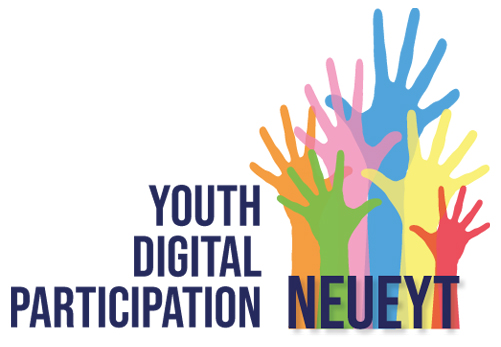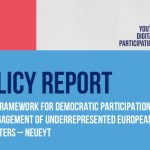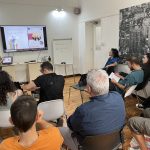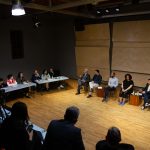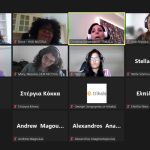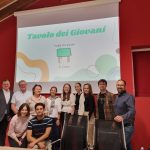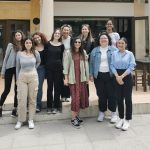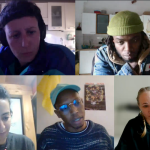
by Rosica | Oct 14, 2022 | Blog&News, Uncategorized
The OECD Recommendation of the Council on Open Government underlines, open government and stakeholder participation initiatives should include specific efforts “dedicated to reaching out to the most relevant, vulnerable, underrepresented, or marginalised groups in society”.
Open government strategies and initiatives aim to support democracy and inclusive growth. They are considered an important tool to increase transparency, accountability and integrity, whilst building stronger relationships between government and citizens allowing them to participate in policy-making.
The OECD Recommendation calls uponadherents to “actively communicate on open government strategies and initiatives, as well as on their outputs, outcomes and impacts, in order to ensure that they are well-known within and outside government, to favour their uptake, as well as to stimulate stakeholder buy-in”.
In this context, tailored communication efforts and strategies from stakeholders’ side are crucial to reach targets, specifically youth.
Understanding how young people use technology and reflect their use of traditional and new media into tailored communication strategies plays a central role for governments seeking to efficiently inform, communicate and engage with them. Technology and in particular social media has become an important part in young people’s everyday life. Indeed, in OECD countries in 2016, over 95% of 16–24-year-olds used the Internet (OECD,2017), while almost 90% of 16–24-year-olds internet users in EU member states use social networks in 2017 (European Commission, 2018). 53% of 18–24-year-olds use social media as a gateway to news, compared to 33% accessing them directly, according to a study in selected countries (Reuters Institute, 2018). Yet, technology is not used to the same extend to interact with the government and participate. In 2013, only 40% of young Europeans interact online with the public administration while only 18% use social media to engage in civic and political life (Mickoleit, 2014). There is thus a need and potential to extend the use of the online debate to engage and communicate with youth.
In practice all stakeholders and policy makers should:
- Promote inclusive communication
- Carry out surveys of existing youth engagement channels (youth groups, youth councils, internship
programmes, etc.) and determine demographic profile of each programme
- Identify gaps in current engagement efforts: regional, age, gender, socio-economic background
- Identify existing civil society organisations working in these areas missing from current communication strategies
- Ensure that all government communications strategies are monitored for inclusivity
- Explot the potential of digital tools
Research demonstrates that young people increasingly consider that there is no single source of information they prefer to turn to for political news and views. Moreover, young people are no longer content to merely receive information from official authorities, media outlets and opinion leaders but increasingly expect to play a role in producing or sharing it (Wells, 2014). A successful approach to engage large numbers of young people is to adopt a more networked, digital approach to communications that expects young people to participate actively.
- Take it direct and simple, adopting
- Simple, clean, uncluttered advertising
- Honest and straightforward in approach
- Not patronising, condescending, or authoritarian
- The use of music as a key element
- Use images, colour, strong visuals
- People and situations with whom they can identify
Source: Australian Government, Office for Youth, 2009
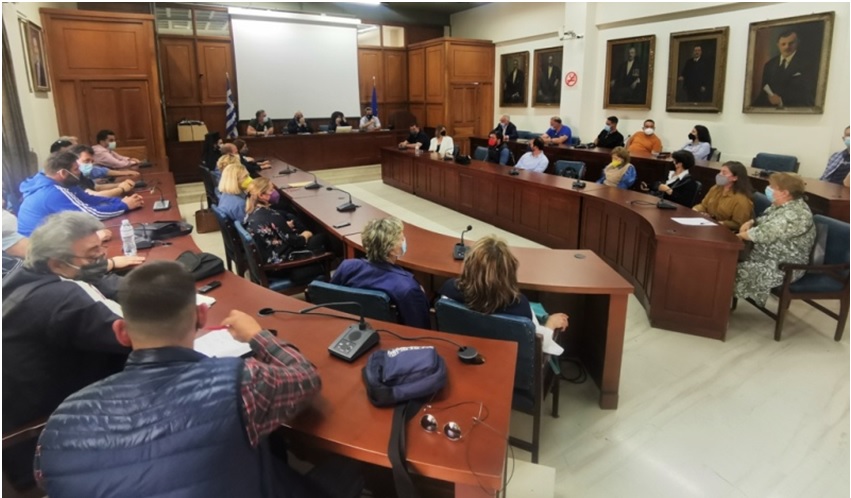
by Rosica | Sep 26, 2022 | Blog&News
Through these meetings NEUEYT partners aim is to map and identify all the major local stakeholders that will play a vital role in implementing and supporting the projects initiatives and mobilize them in participating in different activities that promote youngsters democratic participation.
The first event of this type was organized in Greece by E-Trikala, on 19th of May 2022 and lasted 3 hours where 40 stakeholders were present (young people, policy makers, partners, etc).
On this event E-Trikala had the chance to present NEUEYT project and more particularly the Six steps to democratic participation and the Youth Council initiatives to both the authorities and institutions of the city
The meeting took place at the City Hall, where representatives of local institutions and associations gathered.
During the meeting the Deputy Regional Minister of Health of Thessaly Mr. Dimitra Natsina and the Deputy Mayors of Trikala EfiLeventi and Vas. Kranias, the President of the Municipal Council of Trikala George Panagiotou and the Vice President of the Tsitsanis Museum and Head of the Volunteers of Trikala, Michalis Lappas, introduced to the representatives the importance of empowering youngsters to participate to democratic procedures. More particularly the concept of creating the first Youth Council was discussed in detail.
This first meeting was supported by representatives of local educational and cultural associations (Pyrgetou, Agia Kyriaki, Sotiras, Fotada, ApantachouLagkadioton, Sarakatsanaion, Kipaki, Agia Moni, AgiaTriada, Varousiou, Efxinou Club, ElokiChotei, ELOK, Polio (“Asteras”, “Aeolos”, AS Asklipios, AS TRIKKI, SOAT, AST, Delphi), who had the opportunity to express their opinion and analyse the way that could support this endeavour
Relevant link of the event: https://trikalacity.gr/proto-vima-gia-tin-idrysi-dimotikoy-symvoylioy-neon-d-trikkaion/
Conclusions and lessons learned:
During this first meeting we were able:
- Present the NEUEYT project and initiatives to the local stakeholders and gain their support
- Set a timeframe and a local roadmap in establishing the first youth council with the support of the local stakeholders. As a result, on the 31 of May 2022 during the official City Councils meeting the establishment of the Municipal Youth Council was discussed by the authorities in an official manner. The Municipal Council of Trikala approved the establishment of the Municipal Youth Council along with a number of actions that will take place the following months. The president of the Municipal Council G. Panagiotou and the implementer of the effort, Mich. Lappas, referred to the need to support the new generation in participating in democratic procedures. Among others, the Mayor also pointed out the need to empower the next generation of people who wish to be involved in local administration procedures.
- E-Trikala will work very close with the Municipality providing technical assistance in order to have a joined and optimal result.
- More meetings will take place in the near future.
Relevant link: https://trikalacity.gr/idryetai-dimotiko-symvoylio-neon-ston-dimo-trikkaion/
The second event of this format happened on 14th of July 2022, where 20 stakeholders were present.
A summary of the activity: On the 14nth of July the Youth Council Organizing committee had a meeting with local stakeholders at the Tsitsani Museum, in order to discuss issues and potential activities that promote youngster’s democratic participation. In addition to this, NEUEYT initiatives currently being implemented (Voice Up, Digital Youth Council and 6 steps) were presented and discussed with the participants. The committee mostly focused in explaining to the stakeholders the actions that need to be followed for the Youth Council to be created and the educational value of 6 the steps initiative for all youngsters wishing to be involved at the Youth Council. A very crucial conversation followed, among the stakeholders and the NEUEYT team in relation to the regulations of a youth council.

by Rosica | Sep 16, 2022 | Blog&News
The Six steps to participation in civic and democratic processes Initiative is now active in Greece and Cyprus. The Initiative aim is to propose a methodological approach to both promote active participation among underrepresented young people and engage various stakeholders/ policymakers in constructive dialogue and action with young people. Check the video below with all neccessary info related to this Iniative.
On 5th of October via ZOOM Transnational Workshop will be organized within this Iniative and International applicants are encouraged to apply! You can find more info and apply for this wokrshop on the button below!

by Rosica | Sep 15, 2022 | Blog&News

by Rosica | Sep 14, 2022 | Blog&News
This week, Poraka Nova in collaboration with the local media outlet Ohrid.net published a press release on their website for promoting the project NEUEYT and the Initiatives that were created by the partners, with focus on the 3 initiatives that are currently implementing in N.Macedonia (Self Advocacy Influencers, We & Us Panel and Silent Debate).
As the press release reads: “ our aim is activating youth active citizenship and democratic participation, with special regards to youngsters in rural areas more in need of involvement, so as to engage proper dialogue with policy makers. Therefore, NEUYET provides 8 initiatives for youth democratic engagement and participation for young people coming from Italy, Greece, France, Cyprus, North Macedonia and Norway..”
You can read the full press release in Macedonian by clicking on the button below! The english translation is available here.

